Think back to your middle school years. Do you remember buying something because everyone else had it? Do you remember feeling bad if you couldn’t afford what everyone else had or couldn’t keep up with the styles? Do you remember taking fashion or lifestyle inspiration from what you saw on “Hannah Montana” or “Wizards of Waverly Place”? Do you remember wanting to be exactly like the Disney stars on TV?
The way you felt as a tween in middle school hasn’t changed with today’s youth. Our feelings of insecurity, comparison and judgment have only expanded in ways we couldn’t imagine due to the rise of social media and mobile phones. As a new generation has come up, instead of taking the time to shift their inner feeling in a world of social influence, we’ve taken to degrading them across social media platforms.
The “tween” years mark a young person’s passage from childhood to adolescence and usually fall between the ages of nine and 12. These tween years are critical to youth development and come with changes like heightened emotions, puberty and the need to fit in. Physical changes that happen during puberty are accompanied by a cognitive shift on how we view the world and our relationships with parents and friends. Tweens are no longer kids who are socially indifferent; they place significant emphasis on what others think of them. At this age, adolescents care more about how their friends — not their parents — see them. At times where feelings aren’t easily understood, we feel constricted in our bodies and the pressure of fitting in becomes the most difficult challenge in our world.
Being a tween is already a nightmare without the added pressure of youth comparing themselves with others on social media. One TikTok trend this holiday season involved parents and siblings of tweens sharing their Christmas lists, which often included items far beyond their years, such as Drunk Elephant makeup products, expensive Van Cleef jewelry and pricey Stanley water bottles. I believe there is validity to the fear that children are growing up faster than before. Now more than ever, children are acting beyond their age, and it feels somewhat inevitable. Our social media culture encourages young people to act maturely — even when they’re only 10.
Our society also promotes an intense culture of fitting in. At age 12, adolescents are not considered “cool” unless they own Lululemon leggings or the latest trendy water bottle. Younger members of society are encouraged to build a facade, hiding behind material objects that don’t truly embrace who they are. In middle and high school, it can feel isolating not to fit the mold. It is common to feel pressure to dress a certain way, change voices to sound more intelligent and be outgoing no matter how they feel internally because it’s easier to fit in than stand out.
In a world of social media, it appears that there are always those who are doing better than us, achieving more and owning more. There is always an older role model online to idolize, a trend to follow or a new status symbol you should add to your Christmas list. With the pressure to act older and behave like the influencers they watch online, younger age groups lose their sense of identity because society doesn’t leave room for a nine-year-old to be a nine-year-old.
The topic of influence is not only a tween’s issue. College students as well have taken social media to heights leaving it to control every aspect of their lives without being able to admit it. We act as though we praise differences when we all push to be the same. We’re going through a revolving door, never realizing that if we wait, look around and see the door opening to the other side we can get out of our routine.
Growing up, I loved the tween clothing store Justice. I remember walking in and looking at the “Justice, Just For Girls” sign. Wearing bright colors and cheap jewelry was my form of girl-power feminism as a kid. Justice had everything you could imagine catered to young girls who were just starting to dress themselves and figure out their own unique fashion sense. When you went to school, you had to be wearing sparkle-filled shirts plastered with a funny pun to be considered cool.
When family-friendly shows on Disney, Nickelodeon, Teen Nick and Disney Junior are no longer at the forefront of childhood, there are few distinct markets that produce media about middle school and high school in a more appropriate and entertaining way. There is little transition from kid shows to shows catered to adults when kids have streaming services like Hulu, Netflix and Paramount Plus where shows like “Euphoria,” “Thirteen Reasons Why” and “Sex Education” are advertised and more available to younger audiences. These shows depict middle and high-school students through the lens of drugs, sex, suicide and bullying. While normalizing sex and mental illness teaches caution signs, there is no balance. The things they show do happen, but they’re not cautionary tales or direction to helpful resources. The teens in television are dramatized because it makes for good entertainment. It makes us feel like having a simple or boring life compared to Maddy Perez or Cassie Howard is wrong.
What kids see on TV changes how they interact in the real world; the revealing outfits worn by actors and a dialogue full of explicit language models what tweens are wearing and saying. Gone is the era of the responsible Disney Channel stars. Growing up, I had Raven Symone, Demi Lovato, Miley Cyrus — role models who upheld the “responsible child star” image and starred in family-friendly programs without swearing or sexual content. Most importantly, they were the same age as I was. Kids can choose to watch Disney, but it is not as popular as it was back in the day. I was 11 watching 11-year-olds on my screen. Now, when you turn on the television, actors are often decades older than the age of the child they are playing. A 30-year-old is playing a 17-year-old, so they’ve long finished puberty. It makes the kids watching feel inadequate because they don’t look like the person on screen.
Growing up is natural, but valuable stages are lost when the media pushes everyone to grow up faster than they need to. This phenomenon is not exclusive to tweens; media targeting college students has the same effect. When we go on TikTok and see the success we haven’t lived up to, we strive to push forward, and lose the enjoyment of being a college student.
As Vanderbilt students, it is easy to envy people online who are doing better than we are. We buy products like the newest Stanley water bottles — myself included — to fit in with our cooler, better-dressed peers. We search for prestigious internships just to come back and say we’ve done something, to prove we are successful. There’s nothing wrong with that — it’s human nature to adapt to match our environment.
Our loss of individuality online doesn’t stop with the loss of the tween years. We can’t ignore the red flags flashing in our faces and turn back to judge kids for not being kids. If we want to see change, it’s important to restrict kids from accessing media designed for adults and to be mindful of what we interact with and spread online. Don’t be quick to expose younger children or siblings to shows that are potentially damaging. Have conversations about the reality presented on social media from safety to the overall topic of influence. If you have younger siblings who want extravagant things, compromise. Show them alternatives they can use that are good for them. Don’t go to social media to bash them, educate them.
If not, we’ll lose the precious stages of living through the stages of growing up



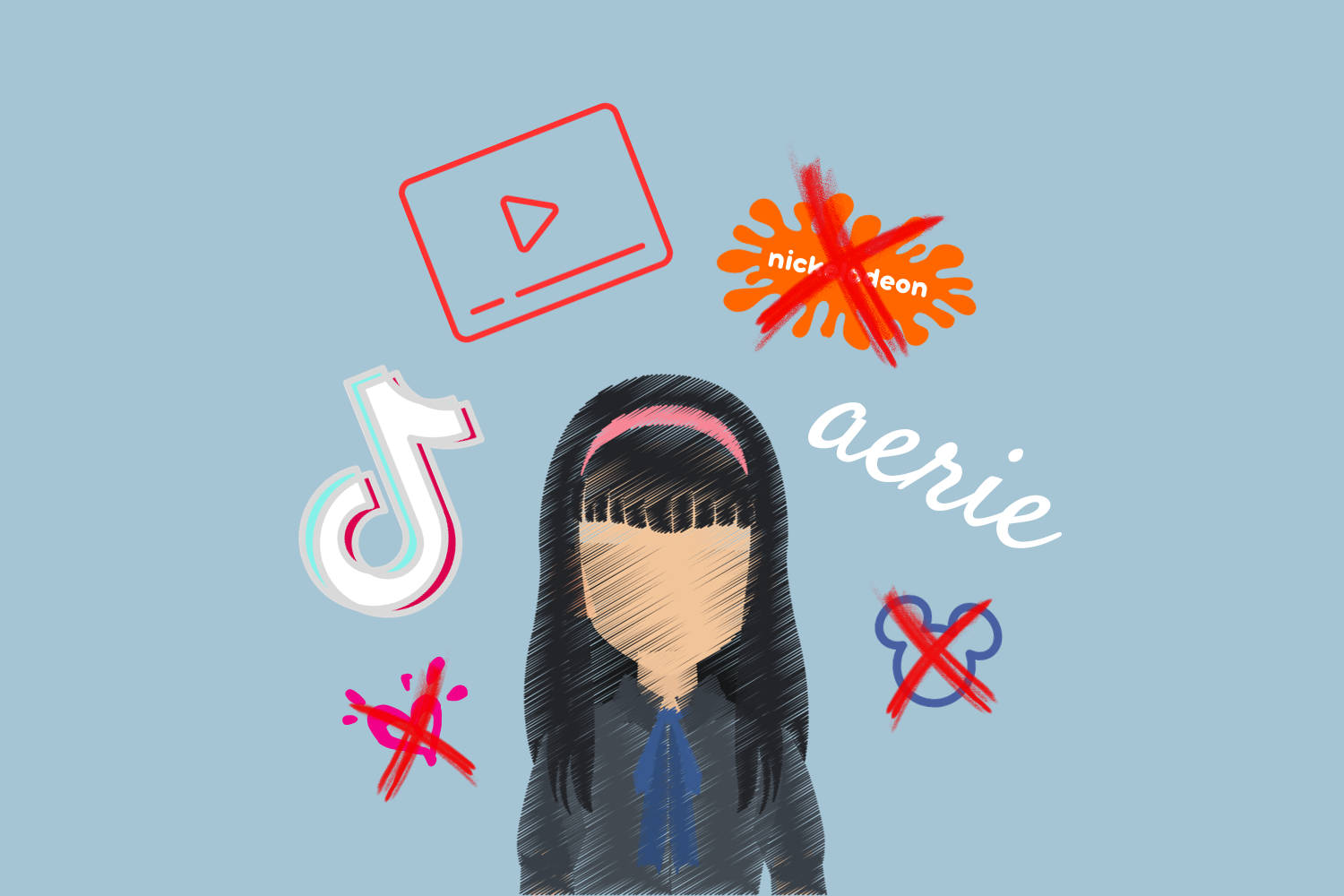


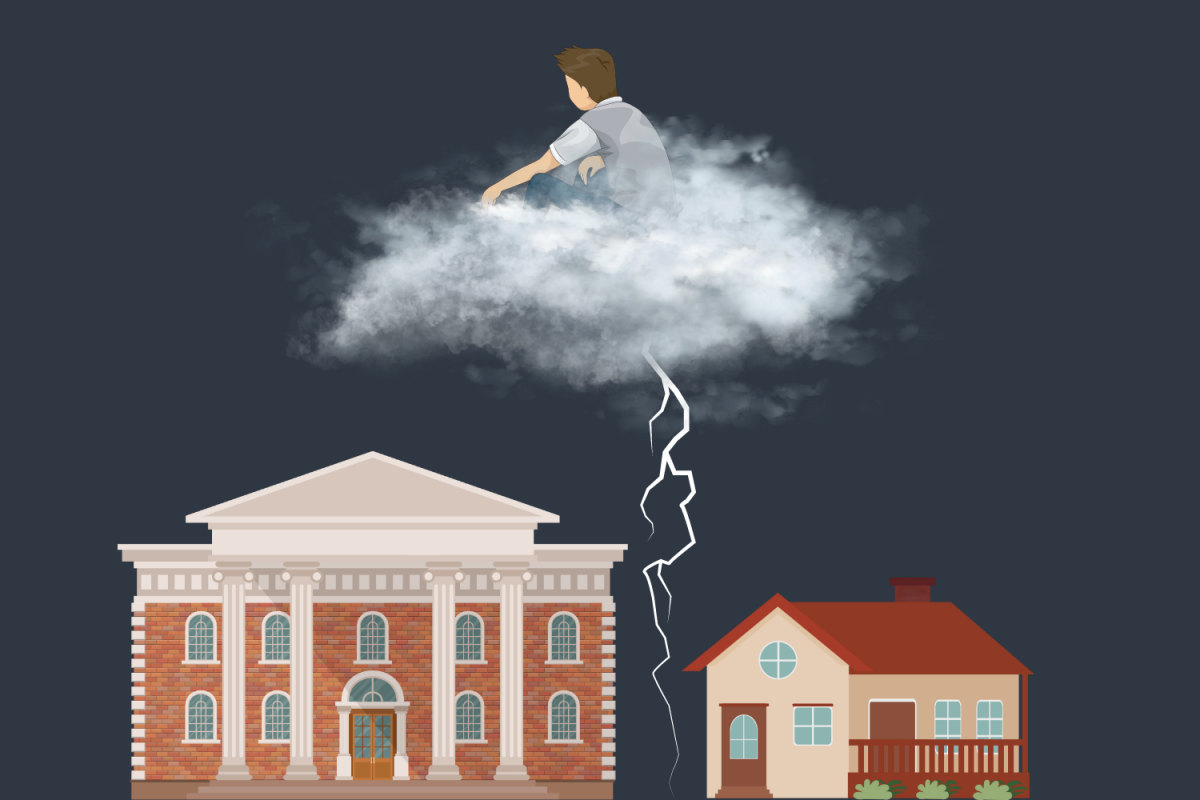
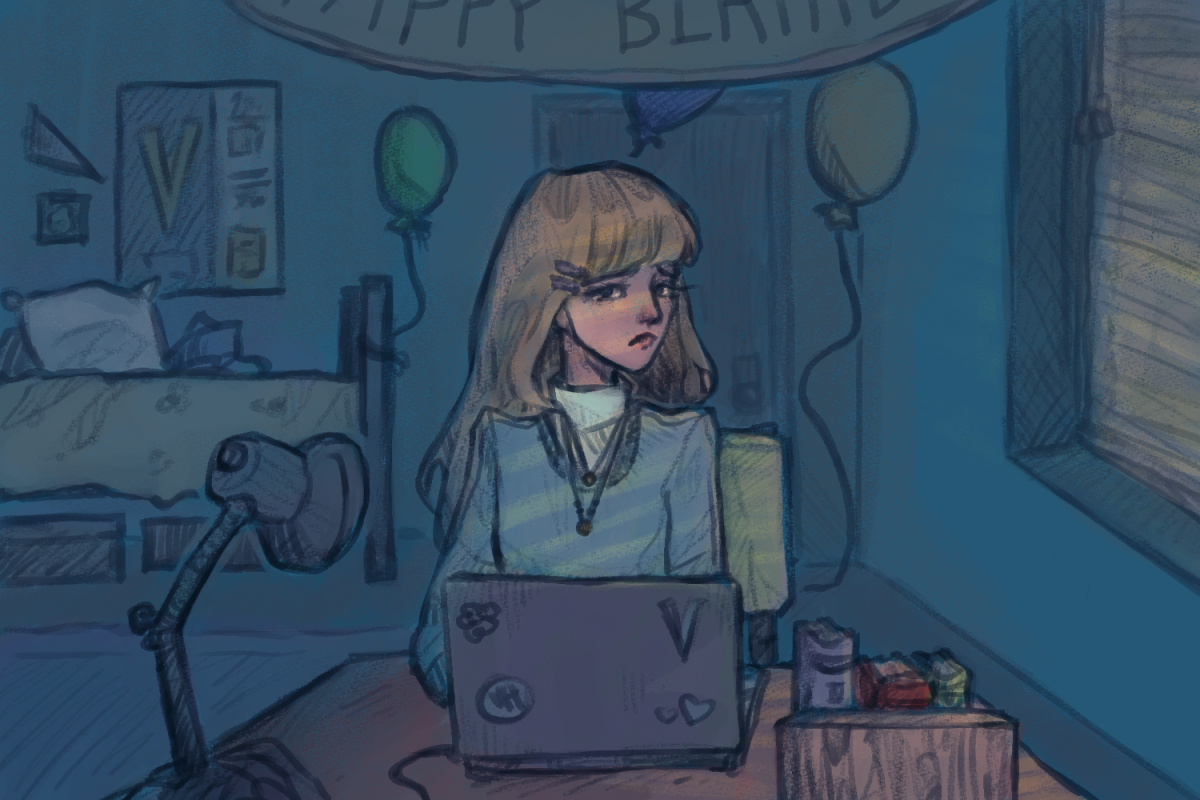

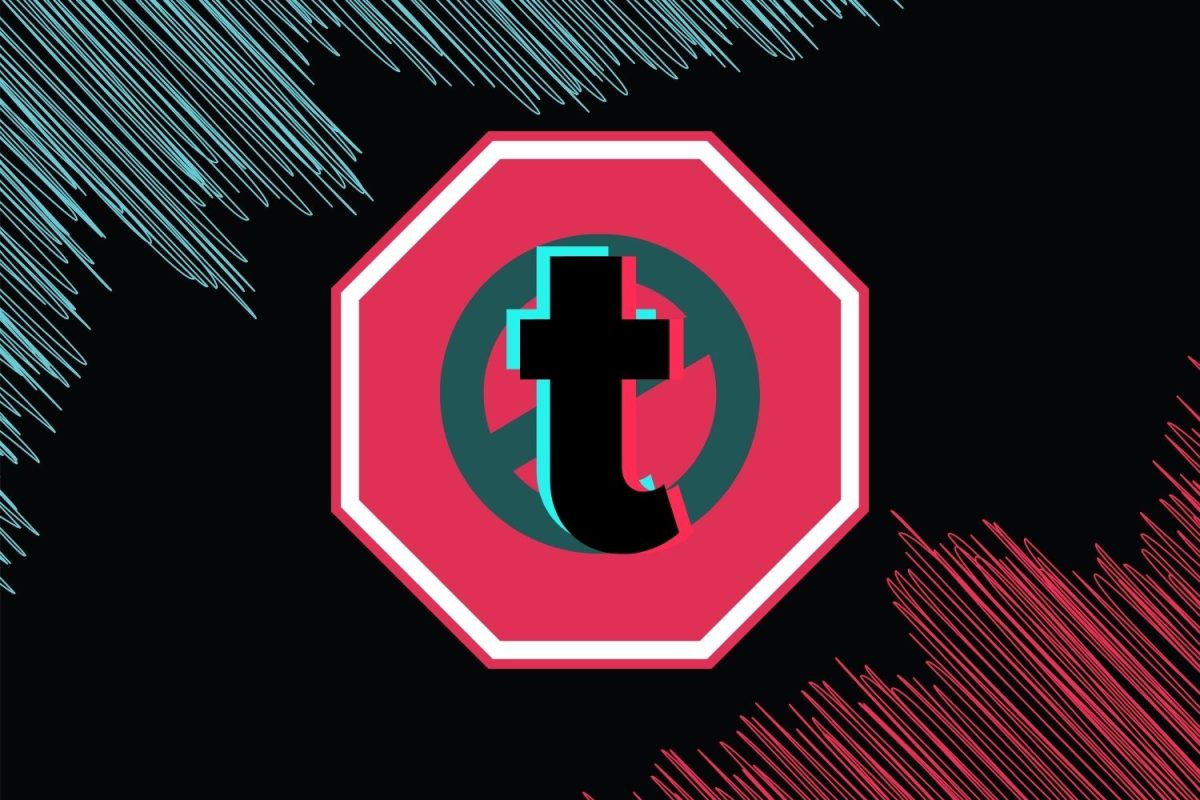
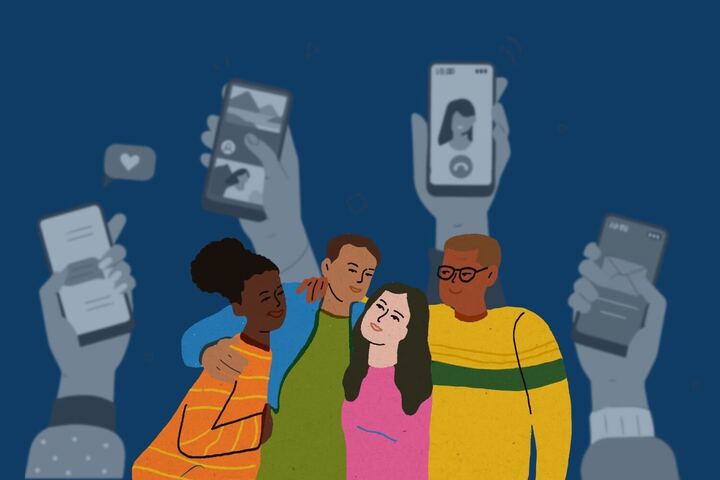

Too rich for my blood • Jan 22, 2024 at 5:44 pm CST
This article should’ve been written by someone who couldn’t afford Justice growing up. Perhaps then it would’ve been more compelling than staring at a blank dorm room wall.